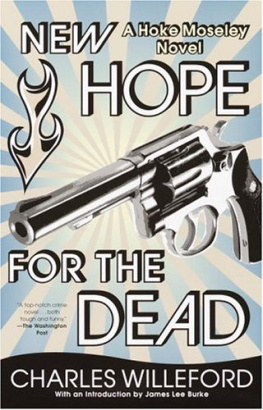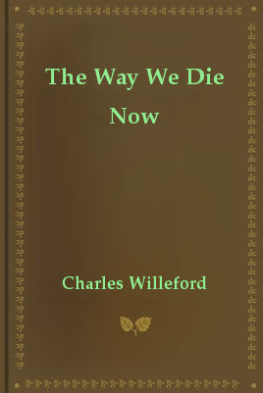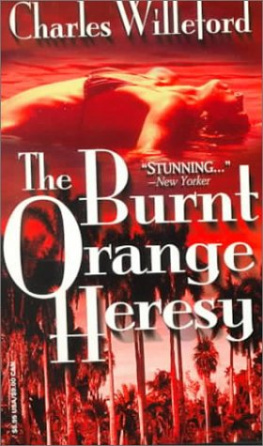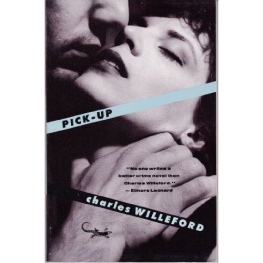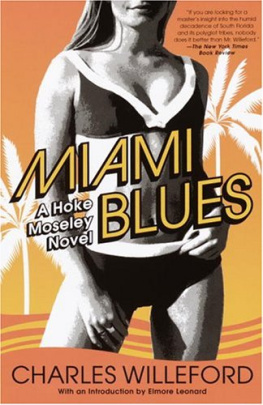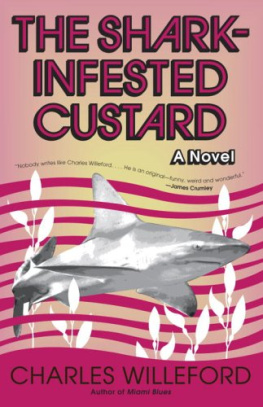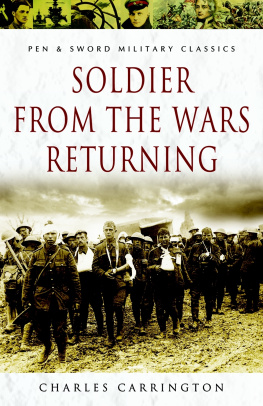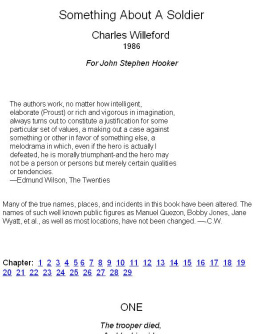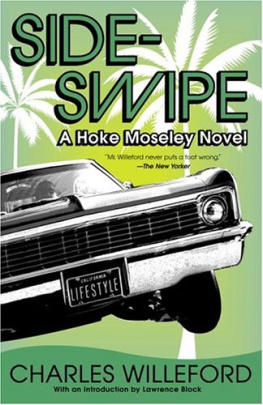Charles Willeford - Something About a Soldier
Here you can read online Charles Willeford - Something About a Soldier full text of the book (entire story) in english for free. Download pdf and epub, get meaning, cover and reviews about this ebook. year: 1988, publisher: Ballantine Books, genre: Detective and thriller. Description of the work, (preface) as well as reviews are available. Best literature library LitArk.com created for fans of good reading and offers a wide selection of genres:
Romance novel
Science fiction
Adventure
Detective
Science
History
Home and family
Prose
Art
Politics
Computer
Non-fiction
Religion
Business
Children
Humor
Choose a favorite category and find really read worthwhile books. Enjoy immersion in the world of imagination, feel the emotions of the characters or learn something new for yourself, make an fascinating discovery.

- Book:Something About a Soldier
- Author:
- Publisher:Ballantine Books
- Genre:
- Year:1988
- Rating:3 / 5
- Favourites:Add to favourites
- Your mark:
- 60
- 1
- 2
- 3
- 4
- 5
Something About a Soldier: summary, description and annotation
We offer to read an annotation, description, summary or preface (depends on what the author of the book "Something About a Soldier" wrote himself). If you haven't found the necessary information about the book — write in the comments, we will try to find it.
Something About a Soldier — read online for free the complete book (whole text) full work
Below is the text of the book, divided by pages. System saving the place of the last page read, allows you to conveniently read the book "Something About a Soldier" online for free, without having to search again every time where you left off. Put a bookmark, and you can go to the page where you finished reading at any time.
Font size:
Interval:
Bookmark:
Something About A Soldier
Charles Willeford
1986
For John Stephen Hooker
The authors work, no matter how intelligent,elaborate(Proust) or rich and vigorous in imagination,
always turns out toconstitute a justification for some
particular set of values, amaking out a case against
something or other in favor ofsomething else, a
melodrama in which, even if the hero isactually l
defeated, he is morally triumphant-and the hero may
not be a person or persons but merely certain qualities
ortendencies.
Edmund Wilson, The Twenties
Many of the true names, places, and incidents in this bookhave been altered. The names of such well known public figures asManuel Quezon, Bobby Jones, Jane Wyatt, et al., as well as mostlocations, have not been changed. -C.W.
Chapter:
ONE
The trooper died,
Andby his side
They placed a wreath,
He tried to get the button
Inthe sheath.
--CW
IF YOU ARE LIKE ME, PROBABLY EITHER YOU SKIP THEepigraph above a chapter, or else you read it and forget
about it once you get into the narrative. This time,however, if you haven't read the epigraph, please do so now.
Okay? You have read it and now you have one or twoquestions, right? What is a sheath? What is a button? That is thepurpose of this book, to answer questions like these, but I'm notwriting as a mature individual looking back at his youth. Myintention here is to recapture past events as they happened, and toreport how I reacted to and felt about these incidents at the time.
This little poem, or epigraph, just came to me oneday in March or April 1939. I was standing outside the horseshoeingshack at the Machine Gun Troop stables (11th U.S. Cavalry), rolling acigarette and watching a wedge of little white fishing boatsspreading out gradually as they left Monterey Bay on their way out tosea to net some sardines.
It was a clear, crisp, beautiful day. The wind wasblowing up the hill way, and the smell of the canneries wasstronger than usual. When the wind was right, and it was almostalways right, the salty, iodine-laced odor made a man's nose tingle.
Somehow, high on the Presidio of Monterey, the fishyodor that came from the canneries seemed to be stronger than when youwere down on Cannery Row itself. When the canneries were all working,as they were that month, about the only place you could escape thesmell of these little dead fishes was on the other side of PacificGrove, or else well out into the Dunes, east of Monterey. Some guysgot used to the smell, or so they claimed, but I never did. I alsoassociated the odor with the whores on Cannery Row. I thought aboutwomen a good deal, so I don't suppose it was unnatural for me tothink of whores, sardines, the women packing them in, and thecanneries all at the same time.
I lit my cigarette and untied Old Raz from the line.Sergeant Bellows, the stable sergeant, had tied the horse on the linethat morning. I assumed that Old Raz was to be shod next, because hewas the next horse on our short picket line behind the horseshoeingshack.
Old Raz was nineteen years old, the same age as me.His real name was just plain Raz, and his Preston brand was 136E, buthe was called Old Raz because his entire head had turned white. Ahorse's color is determined by his muzzle, and Old Raz was really abay, but his head, including his muzzle, was white now with age. OldRaz was also an incorrigible cribber. He was cribbing now, as Iuntied him from the line, biting down on the knot of the halter shankwith his long yellow teeth and forcing big round batches of sour airup from his lungs in long groaning belches. His eyes were filmedover, too. If the vet had removed these scummy films with a scalpel,Old Raz would have been able to see better. But that operation wasunlikely because there was a great big I.C. painted on the horse'snear side in red paint. The I.C. meant that the animal had beeninspected and condemned. So if Old Raz had been I.C.'d, why were weputting new shoes on him?
As I untied Old Raz, he spread his back legs alittle, extended his sheath about two feet, and urinated for about aminute. I waited for him, of course, which gave me time to finish mycigarette and to think up my little poem about the button and thesheath. No one would ever get another button from Old Raz's sheath.Once the vet has condemned him, a horse won't be around much longer.All of these things in commondeath, sheath, button, fishysmell, white boats going out to kill more sardines, and a vagueremembrance of a whore at La Ida's on Cannery Rowall clickedtogether, and the little poem came to me.
Just like that.
If you have ever read Edgar Allan Poe's explanationabout how he came to write "The Raven," you probably shookyour head in disbelief as I did when I read it, Poe was a bullshitartist, and his long-winded exposition simply doesn't ring true, butmy explanation will, as I get into it a little deeper.
I led Old Raz into the shed, and Socky looked up fromthe forge and scowled. The scowl was no clue as to how he feltbecause Sockyshort for Sokoloskiwas always scowling aboutsomething or other. He was chief horseshoer for Machine Gun Troop,with a rating of private first class, third class specialist, and Iwas more than a little afraid of him. He was bigger than me, muchbigger, with the sloping shoulders of a professional fighter. Hisarms were almost too long in proportion to the rest of his body, andwhen he made a muscle, his biceps was twenty-one inches incircumference. I wasn't physically afraid of Socky, because if heever came after me I knew I could outrun him, but I dreaded hisscorn, his disgust, and his surly silences. Under Socky's inepttutelage I was having a hell of a hard time leaming how to shoehorses. He couldn't explain things verbally; he could only show youwhat to do, and then, if you didn't do it exactly as he had shownyou, he shook his head in disgust, pushed you away, and finished ithimself.
"What're you doing with Old Raz?" Sockysaid.
"He's next on the line."
"Can't you read?" Socky pointed to the redletters on Old Raz's barrel,
I shrugged. "Sergeant Bellows tied him on ourline this morning."
"Jesus, Willeford, nobody's ridden Old Raz forat least two years."
Wild Horse Halkins, the second horseshoer, who wasusing the rasp on Party Crasher's left rear hoof, turned his headthen. "I think the stable sergeant's hiding him out from theknackers. There's supposed to be a semi-load of sick horses going outto Giglin this aftemoon, and Sergeant Bellows is gonna sneak him onthe truck."
I nodded and retied Old Raz on the outside line,feeling good for the first time that month. There was an enormouspasturage out at the Giglin Military Reservation, where Camp Ord waslocated, and sick horses, rundown horses, or horses with a badcannon or something that needed time to rest and heal were taken outthere and left. They ate brown grass and ran around loose in thehills. Once a day a truckload of hay was taken out there, dumped, and
broken open. The horses would come crowding aroundand would fill up on hay. They didn't get any oats, of course,because they weren't working. But a month or so out on the rangebrought most of them up to snuff again, and they could be rounded upand trucked back to the Presidio for duty. If Sergeant Bellows couldsmuggle Old Raz out there, the condemned horse would be safe from theknackers, and he could run aroundor stumble aroundin the hillsfor months before he was discovered again.
There were five I.C.'d horses already tied on thetroop picket line west of the stables, as they had been tied everyday for almost a week now, and today was the day the knackers weresupposed to come for them. The knackers were civilians, and they hada truck with an Aframe mounted on the back. One of them would takea piece of blue chalk, draw an X from a horse's ears to his eyes, andshoot him in the head where the X met in the middle. Then theywinched the dead horse onto the truck. I had watched them once beforewhen they had killed three horses and took them away. None of thehorses moved as the man went along the line shooting them in thehead. The horses made no association with the report of the pistoland their own deaths. They didn't even jerk in surprise as the .45was fired into the head of the horse standing next to them. That wasbecause cavalry horses were conditioned
Font size:
Interval:
Bookmark:
Similar books «Something About a Soldier»
Look at similar books to Something About a Soldier. We have selected literature similar in name and meaning in the hope of providing readers with more options to find new, interesting, not yet read works.
Discussion, reviews of the book Something About a Soldier and just readers' own opinions. Leave your comments, write what you think about the work, its meaning or the main characters. Specify what exactly you liked and what you didn't like, and why you think so.

